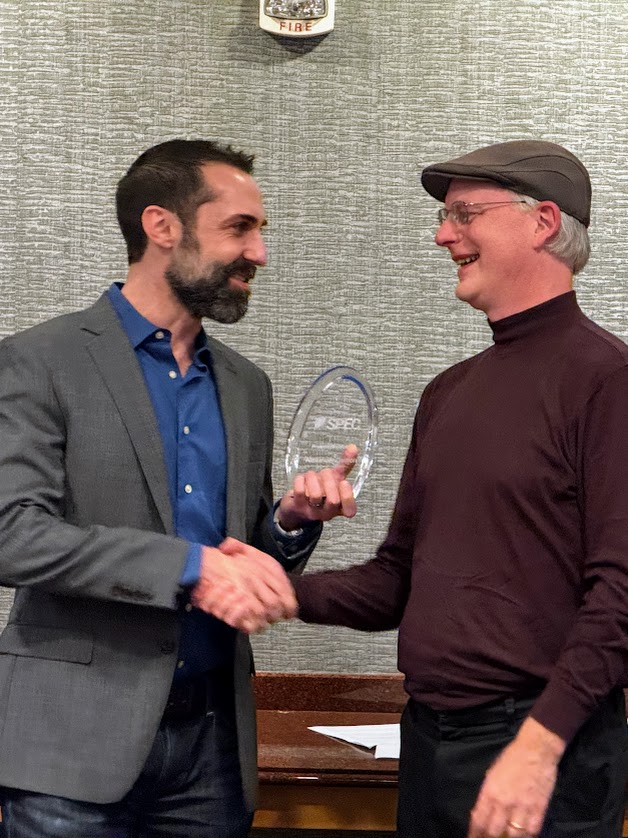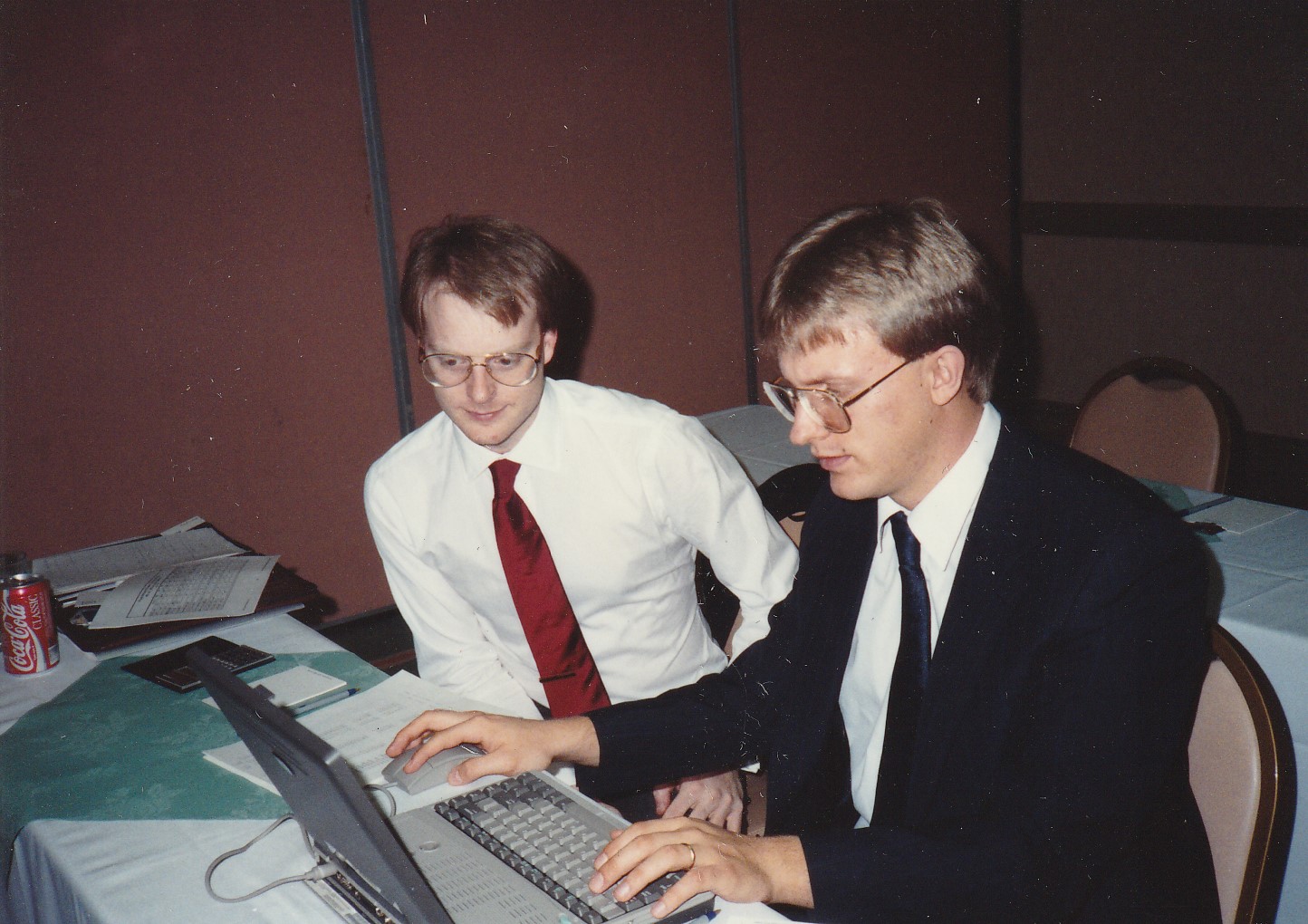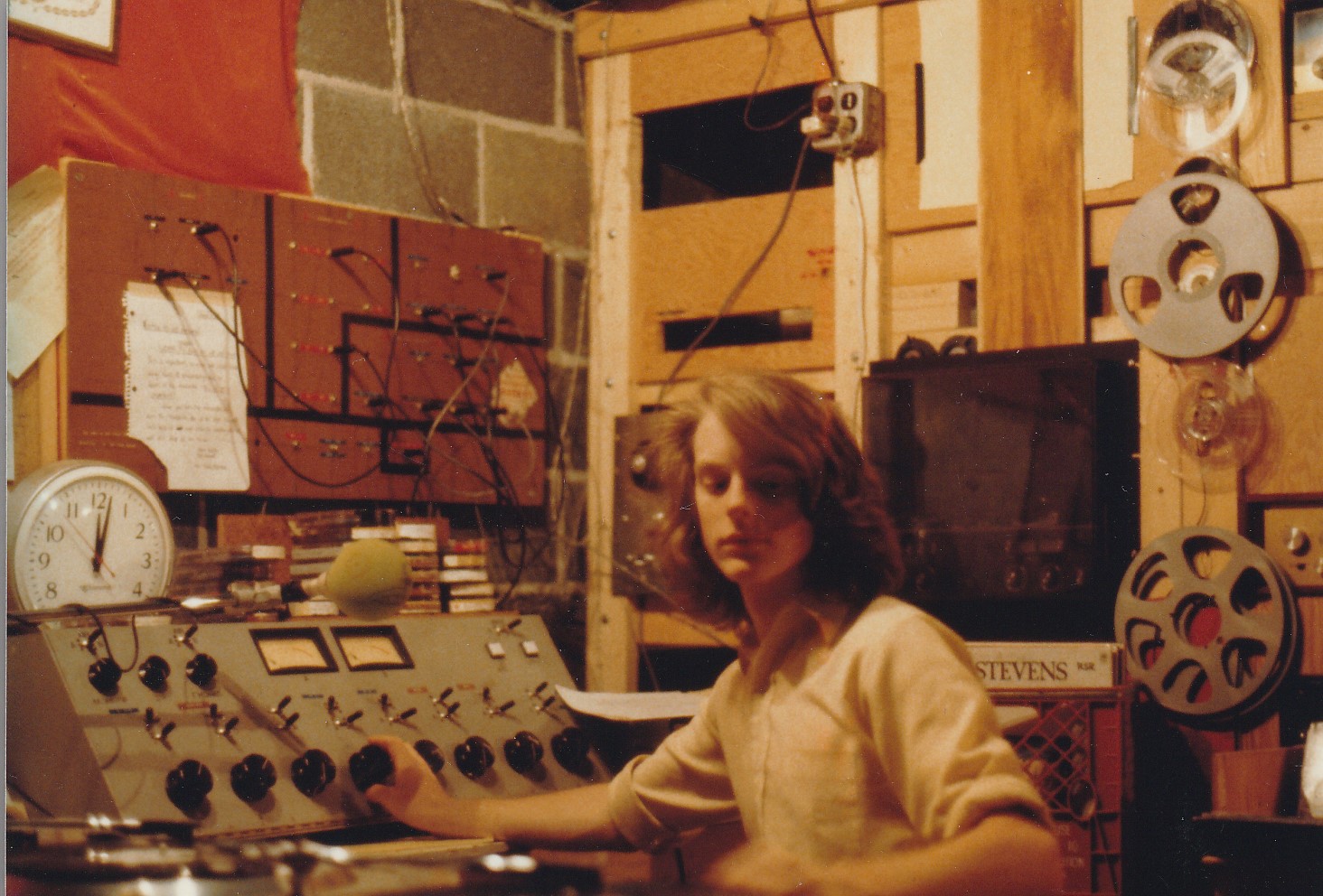
The 2024 SPEC Presidential Award Laureate
Alexander Carlton
SPEC Editor; Senior Performance Engineer, AMD
A Quest to Make SPEC Better
Alexander Carlton, this year's Presidential Award winner, has spent more than 30 years on a quest to make SPEC better. But it isn't just the time or the number of roles he's held at SPEC that distinguishes Alexander. It's the unique perspective he brings to every engagement. As he likes to say, "My job is to keep reminding CPU architects that as challenging as SPEC CPU may be, the real world is full of even uglier problems."
In a tech world that emphasizes efficient architectures, well-structured databases, and linear values, Alexander's area of focus is office productivity applications, such as those from Microsoft and Google, that have "chaotic data shoved into ancient data structures that are no longer well designed for current systems." That's why Alexander focuses on more than just CPU scores. He dwells on how users experience their applications, on the ability of vendors to make it a twitch faster between keystrokes in Word, for example, so writers experience less drag.
Alexander's focus on office productivity isn't surprising. He grew up as the odd geek in a classic liberal arts family in and around New York and New England. His father ran a small publishing company catering to universities, his mother was a LIFE magazine editor. But Alexander's passion for computing started early on. In the 1970s, an MIT-grad gifted his Boston-area middle school with a very early "minicomputer," and he spent afternoons learning to code by writing small games for classmates. In the 1980s, his fellow English-major roommate at the University of Vermont "borrowed" the family's Apple II computer, and Alexander spent nights teaching himself assembly code and computer architecture, so he could create more games. He eventually talked his way into the School of Engineering as it was rebuilding its curriculum around minicomputers and personal computers. A couple of degrees later, he moved out to Silicon Valley.
A Life at SPEC

Alexander joined SPEC in 1991. "I have been working on improving processor performance since computers were larger than refrigerators, usually with a focus on defining better metrics," he says. As the new guy on HP's server "big box' performance team, he was told by his VP to attend SPEC meetings and "straighten out those toy box workstation people" because they didn't understand how to measure multi-processor systems. This was true. While SPEC CPU had already become a popular benchmark in the hot workstation market, its metrics struggled with multi-CPU systems.
Alexander's SPEC career started on the CPU committee, SPEC's only committee at the time, where he participated in an early "benchathon," spending days sitting with a couple of other young engineers from other companies debugging and rewriting SPEC tools. Then, after a year or so of discussion and debate, he co-defined and garnered consensus for the "Homogeneous Capacity Method," today known as SPECrate, the SPEC benchmark with the most SPEC.org publications. He also participated in many committees, with leadership roles in several including being the founding chair of the SPECweb committee, helping lead the development of the SPECweb workload, the industry's first web server benchmark, and as CPU committee project lead, IO committee developer, System committee project lead, Web committee chair, and Handheld committee chair.
In addition to his technical contributions, Alexander has continually supported SPEC's infrastructure development. He helped create the SPEC Newsletter in the 1990s, serving several elected terms as editor, and he was instrumental in building the first versions of SPEC's public server (now www.SPEC.org) and SPEC's internal systems using hardware, lab space and connectivity he borrowed from his employer. With these systems SPEC went live on the internet soon after New Year's Eve 1996, with the archives reaching back to the first email that was sent by Alexander on Jan 6, 1996, shortly after midnight.
Today, though he isn't paid for his time, Alexander still serves as the SPEC Editor, working to address the individual needs of the committees, while tirelessly improving SPEC's website and infrastructure.
"I have always had the good fortune to work with people much smarter than myself, and SPEC has consistently provided a wealth of great people to work with and many good problems to solve," says Alexander. He also appreciates that SPEC has managed to develop a culture that pushes robust quality towards the top of the to-do list. "It is all too easy in this industry to give into the short-term marketing pressures and deliver a quick test that makes one product look good – but the market quickly tires of such tests. SPEC's special quality is the long track record of developing tests that withstand waves of optimizations and continue to provide interesting and useful comparisons."

Beyond technology
It's no surprise that Alexander's passion for computing and English come together in an appreciation of Science Fiction, and one of the things he likes most about the genre is that it tackles big questions and big problems that go beyond the individual. How do individuals figure out what their role is in helping to get through big challenges and come out on the other side?
What Alexander has learned from these stories and from life is that while you want a simple answer to big challenges, the simplest answer doesn't always work. You need to find which simple answer is the key to the current situation and which other simple solutions work in each different situation. It's an approach that has helped Alexander manage "the ugly problems of real life." It's what has made him effective at coaching soccer and helping run local tournaments and leagues ("Competition on the field can be a good way for kids to learn lessons to compete better in the real world.") And it has made all the difference in helping SPEC be a better organization.
Congratulations Alexander on receiving the 2024 SPEC Presidential Award!







